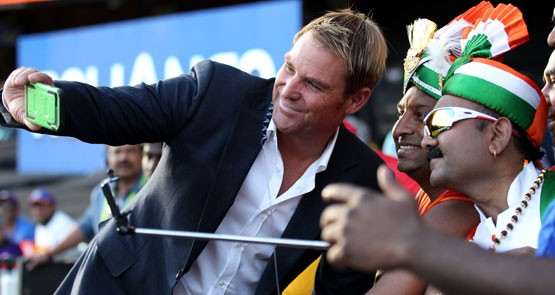
Inspired by Bloomberg’s annual jealousy list, here’s some of the journalism we at Crikey wish we’d produced ourselves. Given we won’t be publishing anything for you for the next two weeks, we present it here for your reading pleasure.
“Just not cricket — how Channel Nine is destroying a legacy“, by Geoff Lemon. Lemon’s beautifully written ode to a cricket legacy gone wrong perfectly encapsulated the frustrations held for so long by so many.
“Taxpayers charged $5000 for Brownyn Bishop’s charter flight from Melbourne to Geelong“, by Annika Smethurst. Tabloid journalism at its absolute best.
“The Strange Case of Anna Stubblefield“, by Daniel Engber. Anna Stubblefield has dedicated her life to helping the disabled. When she found a way to help a severely disabled man to communicate for the first time, his family was, at first, thrilled. But then, she says, they fell in love. When her relationship with her patient turned sexual, she was found guilty of a first-degree felony.
“The secret ingredient in Geoff Beatties rich dark fruit cake“, by Trent Dalton. Geoff Beattie is a champion baker. Why his cakes are so good is equal parts uplifting and heart-breaking. This is journalism for the soul.
“Universities Australia, Clean Energy Council’s lobbying lessons“, by Sophie Morris. Lobbying doesn’t get reported on enough in Australia. In this illuminating piece, Morris compares and contrasts the methods used by two different lobby groups and their success (or otherwise) in convincing a divided Senate.
“How Bruce Gordon, the man from WIN, helped catch Silvio Berlusconi“, by James Chessell and Paola Totaro. Through his time at Paramount, WIN TV’s Bruce Gordon had a ringside seat to some of Berlusconi’s corruption. When Italian police came calling, he became a key witness. The little-known but extraordinary saga is here laid bare.
“The girl who gets gifts from birds“, by Katy Sewall. Since she was four, Gabi Mann has been sharing her lunch with the birds. And now, they share their bounty back.
“The darkness in every one of us”, by Helen Garner. Why write about darkness? And what comfort, if any, is there in doing so? Shortly after the release of her book This House of Grief, Garner’s soulful exploration of these questions is unsettling and vital.
“How Australia’s immigration detention regime crushed Fazel Chegeni“, by Ben Doherty. Fazel Chegeni came into Australia’s keeping in 2011. He is now dead. Using the refugee’s case file and interviews with those who knew him, Doherty charts the impact of Australia’s ruthless offshore detention system, as it came down to bare on a stateless victim of torture.
“Blame sugar? We’ve been doing that for over 100 years“, by Alan Levinovitz. Blaming sugar for our ills as a long history, but telling people what not to eat has never worked in the past.
“The last day of her life“, by Robin Marantz Henig. A moving read about the life and death of Sandra Bem, an accomplished academic who, upon being diagnosed with Alzheimer’s, began to plan her own peaceful death with the support of friends and family in a state that does not have voluntary euthanasia laws. The amount of trust Bem’s family placed in Henig to tell their story is extraordinary, and is worth a read for anyone on the fence regarding voluntary euthanasia.







The3 best Festive Season joke might well be Crikey granting Awards for journalism.
Thanks for these most interesting references.
Crikey shows an insider’s view of Oz & global media you won’t get anywhere else locally, which we ex hacks certainly appreciate.